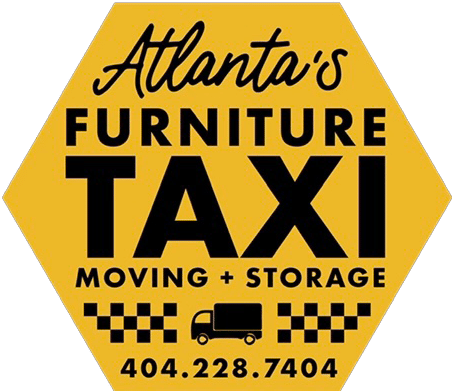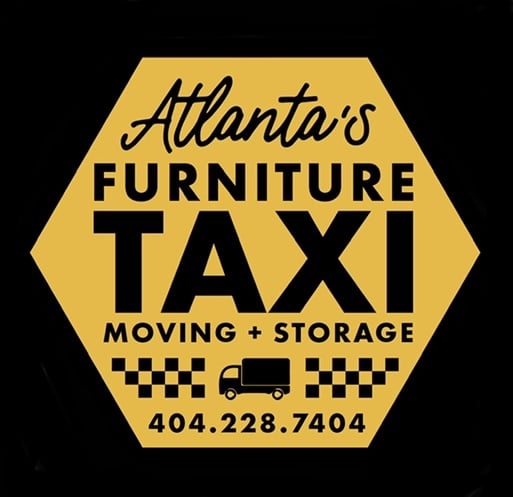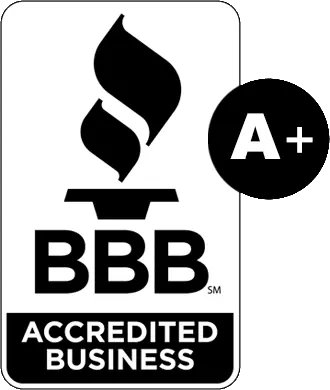
Introduction
Moving can be a daunting task, especially when it comes to the expenses involved. The costs can quickly add up, leaving you with a hefty bill that only adds more stress to an already challenging process. That’s why it’s important to know how to save money on moving costs.
In this article, we’ll explore practical strategies that can help you reduce your moving expenses without sacrificing the quality of your move. From understanding the importance of getting an accurate estimate to finding creative ways to source moving supplies, we’ll cover everything you need to know about saving money during a move.
So whether you’re moving across town or across the country, read on to discover how you can make your move more affordable and less financially burdensome.
1. Estimate the Cost of the Move
Before you start your move, it’s important to estimate how much it will cost. This proactive step can help you plan your finances better, avoid surprises, and possibly find ways to save money. Here are some reasons why estimating your moving costs is beneficial:
- Helps in financial planning: Knowing the expected cost upfront allows you to allocate funds accordingly.
- Identifies cost-saving opportunities: With a detailed estimate, you might find services or items that could be obtained at a lower price or even for free.
- Prevents overspending: By understanding all associated costs, you are less likely to exceed your budget.
To accurately estimate the cost of your move, consider using online calculators available on moving company websites. These tools take into account various factors including:
- Distance of the move
- Volume or weight of belongings
- Additional services like packing and unpacking
- Insurance options
- Storage requirements, if any
Here’s how to leverage online calculators for an effective cost estimation:
- Gather information about your move including addresses, inventory list, and specific service needs.
- Visit reputable moving company websites and access their online calculator tool.
- Input your details to receive a ballpark figure for your moving expenses.
Remember to get estimates from multiple calculators for comparison. Each service provider may have different pricing models and offers that could influence your final decision. Keep in mind that these online estimates are typically initial approximations — obtaining detailed quotes from movers will give you more accurate figures.
Armed with this knowledge, you’re better equipped to make informed decisions that align with your budget and moving goals.

2. Get Creative with Sourcing Moving Supplies
Moving can be expensive if you buy all your moving supplies. But there are ways to get supplies without spending too much money. Here are some tips:
Find Free Boxes from Local Stores
Boxes are essential for any move. Instead of buying new ones, you can try getting them for free from local stores:
- Contact large stores like supermarkets, bookstores, or electronics retailers.
- Ask if they have any sturdy boxes that they no longer need.
- Many stores receive merchandise in these boxes and then recycle them.
- By asking in advance, you might be able to get some boxes before they are recycled.
Use Boxes Effectively
Once you have the boxes, it’s important to use them properly:
- Fill larger boxes with lightweight items.
- Put heavier items in smaller boxes.
- This helps prevent the boxes from breaking and makes them easier to carry.
Get Creative with Packing Materials
You don’t have to buy expensive packing materials like paper or bubble wrap to protect your belongings. Instead, use things you already have at home:
- Old newspapers can be crumpled up and used as padding.
- Towels and blankets can wrap around fragile items for protection.
- Clothes can also be used as padding for delicate objects.
Using these alternatives not only saves you money but also reduces the number of boxes you need since you’re using your own belongings for cushioning.
Tip: When using clothes or linens for packing, make sure to wash them before using them again after the move.
Benefits of Being Resourceful
Being creative when sourcing moving supplies has its benefits:
- You save money by not buying expensive packing materials or new boxes.
- You reduce waste by reusing items that would otherwise be thrown away.
- You minimize the number of boxes needed, making the move more efficient.
So don’t be afraid to think outside the box (pun intended) and find alternative ways to get your moving supplies. It can make a big difference in reducing your moving costs.
5. Have a Backup Plan for Delayed Move-In Dates
Backup plans are important for any move, especially when there’s a chance of delayed move-in dates. The truth is, things don’t always go according to plan. The new house you’re moving into might need unexpected repairs, or the paperwork could end up taking longer than expected.
Having a backup plan ready can help you avoid unexpected expenses, like having to pay for extra storage or temporary accommodation. Here are some ways you can create a reliable backup plan:
- Stay With Friends or Family: If your new home won’t be available on time and you have friends or family nearby, consider asking if you can stay with them temporarily. It may not be ideal, but it can save you money on hotel costs.
- Talk to Your Current Landlord: If you’re currently renting, try talking to your landlord about extending your lease until your new place is ready. They might agree if they don’t already have new tenants lined up.
- Explore Short-Term Rentals: Websites like Airbnb offer options for short-term rentals that could be more affordable than staying in a hotel for an extended period.
Remember, having a backup plan doesn’t mean things will go wrong; it just means you’re prepared in case they do. Now let’s move on to the next section: how to choose movers wisely—because going with the cheapest option isn’t always the best decision!

6. Choose Reputable Movers Over the Lowest Bid
When it comes to moving, it’s not always best to go for the lowest bid. This approach can lead to unexpected issues like damage to your belongings, delays, or hidden costs. The key is to find reputable movers who offer a balance of quality service and reasonable pricing.
To find trusted movers, consider the following tips:
- Check Online Reviews: Look at the reviews of potential movers on platforms such as Google, Yelp, or the Better Business Bureau. Pay attention to comments about the company’s professionalism, timeliness, and care for belongings.
- Verify Licenses and Insurance: Ensure the mover has a valid license and insurance. This information can be found through resources like the U.S. Department of Transportation’s Federal Motor Carrier Safety Administration.
- Ask for References: Request references from past clients who have made similar moves.
By hiring reputable movers, you’re investing in peace of mind. You know that your belongings will be handled professionally and arrive safely at your new home. Plus, professional movers are efficient and experienced in packing and loading items, which could translate into fewer trips and lower costs in the long run.
While it may seem like you’re spending more upfront by not choosing the lowest bid, consider this an investment that can save you money by avoiding damage costs and ensuring a smooth move. The goal isn’t just to move; it’s to move without unnecessary stress or cost – that’s where reputable movers come in.
7. Pack Strategically to Save Space and Money
During a move, it’s easy to forget about how you pack your belongings. But with strategic packing, you can actually save space, time, and money.
Start Early and Pack in Stages
For efficient packing, start early and do it in stages. Avoid the last-minute rush which often leads to items being packed poorly or broken. Go room by room sorting out items, and use this opportunity to declutter.
Maximize Space in Boxes
Maximizing space in boxes goes a long way in reducing the number of boxes needed. Here are some tips:
- Fill up your pots and pans with spices or other small kitchen items before placing them in a box.
- Nest smaller items within larger ones where possible. This not only saves space but also helps protect fragile items.
Use Clothes as Padding
Clothes can double up as padding for breakable items which eliminates the need for bubble wrap or packing paper. Use towels and linens to wrap dishes or other delicate items.
Be Mindful of Heavy Books
Remember that books are heavy so avoid packing too many in one box; distribute their weight across several boxes instead.
The potential cost savings of packing strategically cannot be overstated:
- Fewer boxes mean less material costs.
- Efficient use of space can reduce the size of the moving truck needed.
- Time saved from organized packing means fewer hours paid to movers.
Experiment with different packing strategies until you find what works best for your needs.

9. Ask Moving Companies for Deals and Compare Offers
Negotiating with moving companies can lead to significant savings. Don’t be afraid to ask for better rates or deals. Remember, you are the customer, and you have every right to look for the best value for your money.
Here are some tips to help you negotiate effectively:
- Communicate openly: Start by discussing your budget constraints and ask if there are any available discounts or promotional offers.
- Bundle services: Many companies offer lower rates when you bundle multiple services together. Explore these options.
- Flexible dates: If your moving dates are flexible, you might be able to get a better deal during off-peak times.
Comparing offers from different moving companies is another effective way to save money. While this may take some time, it could result in substantial cost savings.
Implement these strategies when comparing offers:
- Get detailed quotes: Ask each company for detailed, written quotes so that you can compare them side by side.
- Look beyond the price tag: Cheaper isn’t always better. Consider other factors such as reputation, customer reviews, and cancellation policies.
- Don’t rush: Take your time to review all the information before making a decision.
By negotiating with moving companies and comparing their offers, you can ensure that you’re getting the best possible deal on your move.
10. Save Money by Renting a Moving Vehicle
One effective strategy to save money during your move is renting a moving vehicle. Traditional full-service moving companies can add substantial costs to your relocation budget due to their comprehensive services, which may include packing, loading, moving, unloading, and sometimes even unpacking. By renting a moving vehicle, you handle these tasks yourself and pay mainly for the rental and fuel.
Is Renting a Moving Vehicle Right for You?
When considering renting a moving vehicle as an alternative, it’s crucial to evaluate the size of your move and your comfort level with handling such tasks. If you’re working with a smaller volume of items or are comfortable driving larger vehicles such as a van or truck over long distances, this could be a significant cost-saving option for you.
Tips for Saving Money on Rental Vehicles
To minimize costs while renting a moving vehicle:
- Reserve Early: Similar to how flight prices fluctuate, rates for rental vehicles also vary based on demand and availability. Booking your rental vehicle well in advance can potentially secure you a more favorable rate.
- Explore Insurance Options: Check if your current auto insurance policy covers rentals or if the credit card you’re using offers any coverage. This could help you avoid purchasing additional insurance from the rental company.
- Utilize Discounts: Many rental companies offer discounts to members of certain organizations or those who book online. Do some research before finalizing your booking.
Remember that while renting a moving vehicle can indeed save money, it might also add labor on your part. Evaluate all aspects before deciding if this is the right choice for your move.
11. Research Costs of Car Shipping, Movers, and Moving Trucks
One crucial step in saving money during a move is to research costs before making any decisions. Whether you’re considering car shipping, hiring movers, or renting a moving truck, an informed decision can save you from unexpected expenses.
Car Shipping Costs
When it comes to car shipping, costs can vary greatly depending on factors such as distance, vehicle size, and delivery time frame. Several online platforms provide free quotes from various car shipping companies, allowing you to compare prices and services in one place.
Resources for research:
- Websites like UShip or Shiply for car shipping quotes.
Mover Costs
If you decide to hire movers, don’t rush into the first offer. Obtain quotes from multiple companies and carefully review what’s included in their services. An initially cheaper quote might end up costing more due to hidden fees or lack of essential services.
Resources for research:
- Online platforms such as Moving.com or Thumbtack for mover quotes.
Moving Truck Costs
Moving truck rentals are another area where prices can fluctuate widely based on factors like truck size, rental duration, and mileage limits. Many rental companies offer online rate calculators; use these tools to estimate your costs and compare rates across different providers.
Resources for research:
- Rental company websites (U-Haul, Budget Truck Rental) for moving truck costs.
Strategies for researching costs:
- Start your research early.
- Compare at least three different providers.
- Read customer reviews.
- Watch out for hidden fees.
Remember that investing a little time in research now can potentially save you a significant amount in the long run.

Frequently Asked Questions
How far in advance should I book a moving company?
Booking Early is Key: Aim to book a moving company at least 4-6 weeks before your planned move date. During peak moving season, which typically runs from May through September, even earlier booking is advantageous. Early booking ensures you have a wider selection of movers and potential access to better rates.
Can I negotiate the price with moving companies?
Negotiation Is Possible: Yes, prices with moving companies can sometimes be negotiable. To increase your chances:
- Get multiple quotes
- Understand exactly what is included in the price
- Ask for any current promotions or discounts
- Be flexible with your move dates, as some days may be cheaper
Keep in mind that the cheapest option isn’t always the best. Balance cost with the reputation and services provided by the movers.
Should I tip my movers and how much?
Tipping Movers: Tipping is a way to show appreciation for good service. While not obligatory, it’s customary to tip movers if they’ve done a good job. A general guideline is $4-$5 per mover per hour or 10-15% of the total moving cost for large moves.
How do I ensure my belongings are protected during the move?
Protecting Your Belongings:
- Choose movers with insurance coverage.
- Document all your items before packing.
- Use proper packing materials and techniques.
- Consider additional moving insurance for valuable items.
If you’re packing yourself, label boxes clearly and avoid overpacking them to prevent damage.
What items should I move myself?
Personal Items to Move Yourself:
- Important documents
- Jewelry and valuables
- Medications
- Daily essentials
Moving these items yourself reduces the risk of loss or damage during transit.
Is moving insurance worth it?
Evaluating Moving Insurance: Standard mover’s insurance (released value protection) provides minimal coverage. Full-value protection offers more comprehensive coverage but at a higher cost. Assess the value of your belongings and your risk tolerance to decide if purchasing additional insurance is right for you.
What’s the difference between a binding and non-binding estimate?
Binding vs. Non-Binding Estimates:
- Binding Estimate: Guarantees the total cost of the move based on the inventory and services outlined in the estimate.
- Non-Binding Estimate: An approximation of cost which can change based on actual weight and services performed.
Read estimates carefully and understand which type you’re being offered.
Are there certain days or times that are cheaper to move?
Cost-Efficient Moving Days/Times:
- Mid-week moves can be less expensive than weekend moves.
- Mid-month dates are typically cheaper than beginning or end-of-month dates when leases tend to expire.
Choosing off-peak times can lead to potential savings.
By addressing these frequently asked questions, you gain valuable insights into effectively managing and reducing moving costs. With this knowledge, evaluating options becomes clearer, making informed decisions easier as you prepare for your upcoming move.
Conclusion
How to Save Money on Moving Costs? – This question often plagues individuals planning a move. As we’ve discussed, there are numerous strategies you can implement to reduce these expenses. It’s not about cutting corners, but about making smart, informed decisions.
- Estimate costs beforehand: This gives you a fair idea of your moving budget.
- Get creative with supplies: Sourcing free or discounted packing materials could save you more than you’d expect.
- Have a backup plan for delayed move-ins: This is essential to avoid last-minute chaos and unplanned expenditures.
- Choose reputable movers over the lowest bid: It can actually save you money in the long run by preventing potential damage costs.
- Pack strategically: This not only saves space but also reduces the need for extra boxes, which ultimately saves money.
- Negotiate with moving companies and compare offers: Don’t be afraid to ask for a better deal and always shop around for multiple quotes.
- Consider renting a moving vehicle: If you have the manpower and time, this could be a cost-effective alternative to hiring professional movers.
- Research costs thoroughly before deciding on car shipping or hiring movers: Understand the pros and cons of each option to make an informed choice.
Remember, every penny counts! With these strategies up your sleeve, you’re well-equipped to tackle your next move within budget. Don’t just read and forget – implement these tips and discover the difference they make in your moving budget. Your wallet will thank you!







